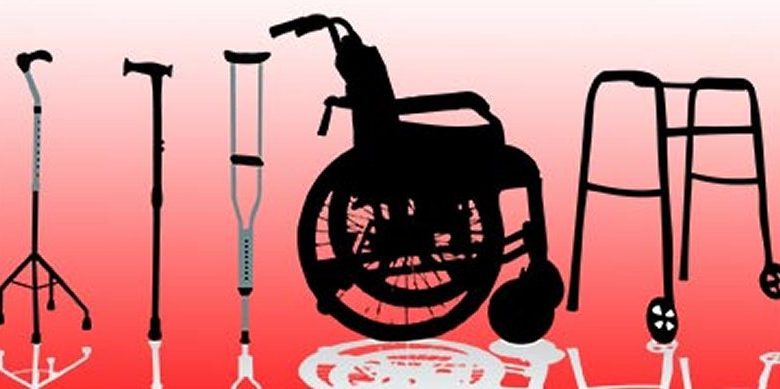
Are you happy with your mobility aids?
Mobility aids can help solve a whole host of challenges that we as disabled people face on a daily basis. But do they go far enough? The Engineering and Physical Sciences Research Council (EPSRC) wants to explore what unsolved problems could be overcome by new mobility aids inventions, and how current mobility aids can better serve our needs. Read on to find out more and to see how you can help…
Many of us use mobility aids, whether that is a complex and expensive piece of kit, such as a power wheelchair, or something more straight forward, like a simple walking frame.
And there are a lot of inventions that work – from kettle tippers that help you safely pour out your daily cup of tea, to handcycles that help you to stay active. But for every mobility aid that truly assists you, there’s one that falls short of its promises.
People also often use multiple aids or use them in a different way to their original intention – perhaps a walker and wheelchair, or a walker and crutches. But very little is known about how people co-ordinate different aids and who would be best to support them in choosing and using different aids for different situations.
So are aids are really meeting people’s needs? Could they be supporting people more effectively? And what is it like living a live with a mobility aid? How do people feel it affects them? How does it affect other people’s perceptions of them?
We know that many aids are abandoned, wasting the NHS, and the individuals who have bought them privately, millions of pounds. Also, professionals – including doctors, physiotherapists and occupational therapists – say they have little idea about how people really use these aids when they leave the hospital or clinic with them. These professionals are the key stepping stone to assisting people with getting you the right mobility aids for them that can make the world of difference.
Mobility aids: how you can help
To investigate these issues, and hopefully come up with some solutions, the EPSRC has funded a project called Adaptive, Assistive and Rehabilitative Technology Beyond the Clinic (AART-BC). The aim of this project is to truly understand how and what mobility aids are used, and what more could be done to improve them and the process of getting them.
As a first step in the research, we would like to hear from as many people as possible about their mobility aids: what they like about them, what problems they have with them and what it’s like living with them?
To get the answers we need, we have created an online questionnaire, which you can fill in by visiting this website: York Mobility Aid Survey. If you prefer a paper copy, we can send you one with a stamped and addressed envelope to return it in (please see details at the bottom of the page).
And to make filling it in even more attractive, everyone who completes the questionnaire will be entered into a prize draw for 10 Amazon gift vouchers worth £10 each. So please help us get the ball rolling.
Mobility aids trial
But it doesn’t end there. To get a really detailed insight into what it is like using mobility aids, we will be running a study alongside the questionnaire. We’ll be working with a number of people who use mobility aids, using sensors attached to the aids to monitor how they’re used.
The sensors will collect lots of information about the movement of the aid and the amount of effort the person has put in to using it, all of which will be sent to a smartphone app. The app will send the person a message five to seven times a day, asking them whether they are using their aid, what they are doing and how they feel.
In addition, if at any time the person has a problem with their aid, they can report it using the app. All this will allow us to really understand how mobility aids are used and the problems people have with them, and form there, develop solutions.
How we’re going to improve mobility aids
At the end of the study, we aim to roll out the app on a wider scale to all mobility aid users. This will enable people to report problems with their aid to their occupational therapist or physiotherapist immediately.
We will also create a system for the therapists to be able to track and visualize this information from their clients. So if someone is having difficulty with their mobility aid, or indeed with mobility in general, their information would be fed to the therapist to help them understand the issues and be able to propose solutions.
We believe this project will make a big difference to people’s lives, so please do help by filling in our online questionnaire at: York Mobility Aid Survey.
If you would prefer a paper copy of the questionnaire, to volunteer to be in the sensor and app study, or if you have any particular questions, please contact Professor Helen Petrie at the University of York at helen.petrie@york.ac.uk
And if you would like to follow the project, we have a website at www.aartbc.org.
By Professor Helen Petrie
Check out…
- 5 mobility aids for accessible travelling
- Disabled toilets: how to have a successful ‘comfort’ break
- Comfort and independence in the bedroom
Get in touch by messaging us on Facebook, tweeting us @DHorizons, emailing us at editor@disabilityhorizons.com or leaving your comments below.